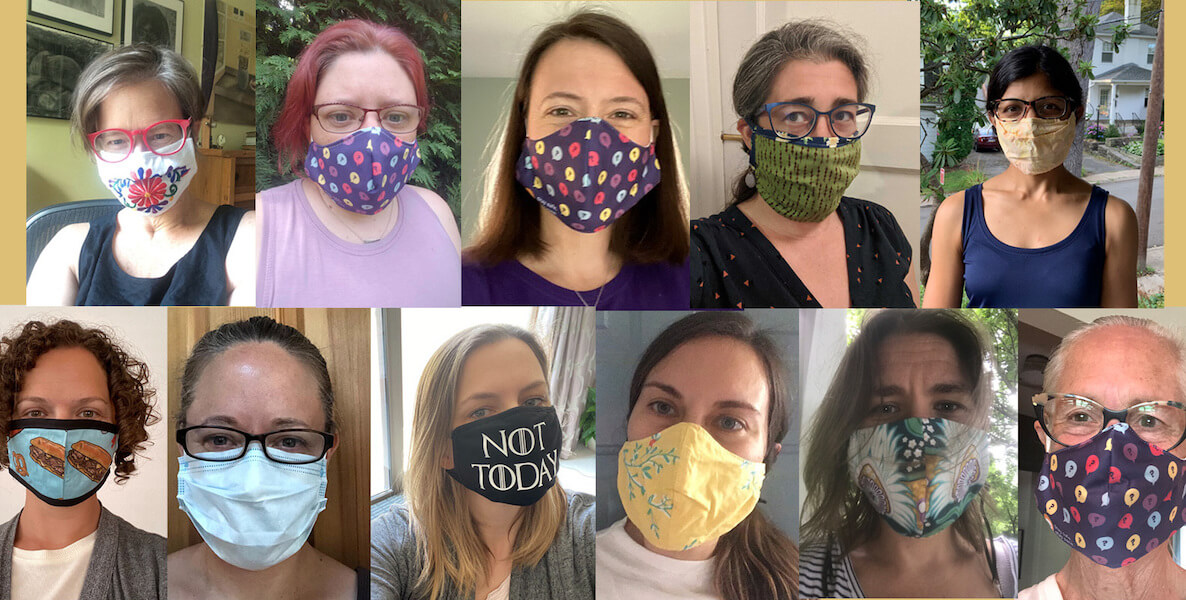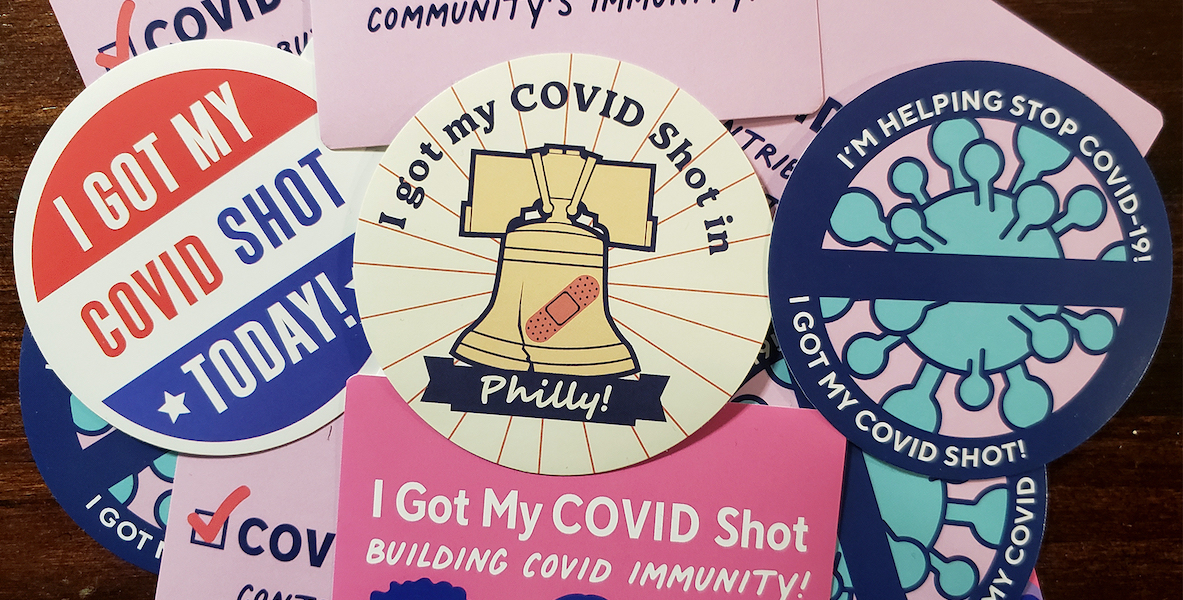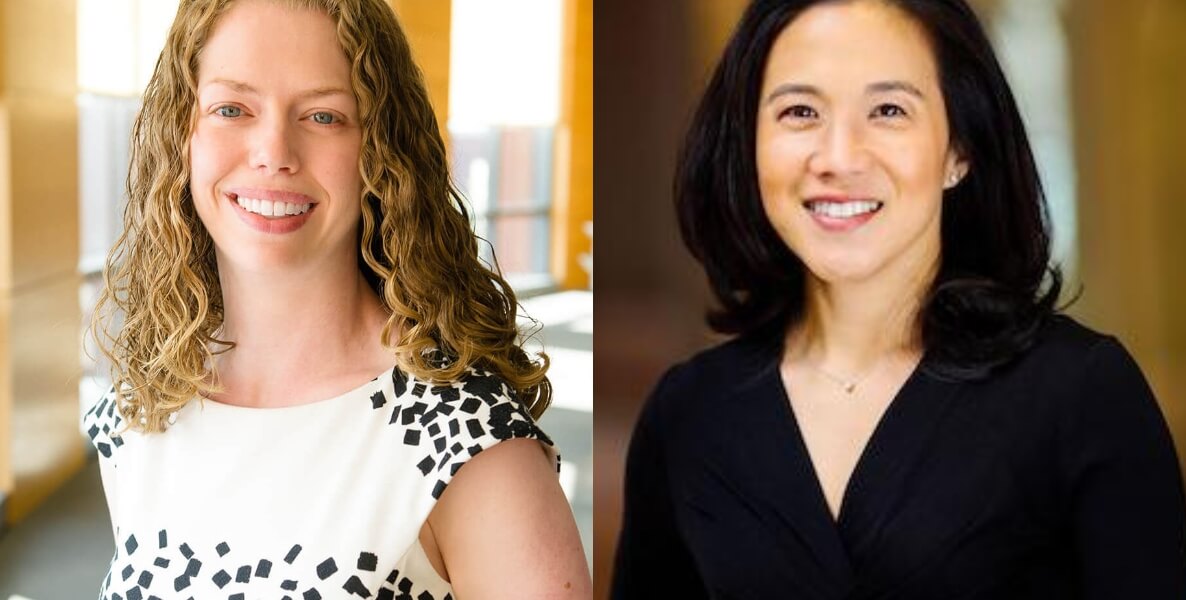![]() In the early days of the pandemic, while patients in nursing homes were dying at an alarming rate, geriatric nurse practitioner Ashley Ritter was plagued by the same uncertainty around Covid-19 as the rest of us. Her patients at NewCourtland Services in Germantown had questions about this terrifying new illness; her colleagues at Penn had questions; her family and friends wanted answers.
In the early days of the pandemic, while patients in nursing homes were dying at an alarming rate, geriatric nurse practitioner Ashley Ritter was plagued by the same uncertainty around Covid-19 as the rest of us. Her patients at NewCourtland Services in Germantown had questions about this terrifying new illness; her colleagues at Penn had questions; her family and friends wanted answers.
But mostly, she found what the rest of us did: Bits and pieces of science, mixed in with a lot of theory, panic and unproven advice. One source Ritter kept coming back to, though, was the Twitter feed of a colleague at the University of Pennsylvania, Alison Buttenheim, a behavioral scientist who specializes in infectious disease prevention and whose tweets shared the best science-backed information out there at the time.
Unfortunately, other social media outlets—where 55 percent of Americans often or sometimes get their news, according to a Pew Research study—were bereft of such information. So Ritter, Buttenheim and Malia Jones, an epidemiologist at University of Wisconsin-Madison, started a Facebook page called Dear Pandemic, a source for easy-to-understand, science-backed Covid information written by a volunteer team of 12 women scientists from around the country and England, including five in Philly. (The team is supported by a project coordinator and a team of experts, translators, student employees, and interns.)
![]() Since May 1, Dear Pandemic has published nearly 1,500 posts on Covid-related topics ranging from “staying safe” to “uncertainty and misinformation,” “social and racial justice,” and “vaccines.” (Archives of the posts are on a website here.) Now, Ritter says, the group has 80,000 followers across all their platforms and reaches about 1 million people a month.
Since May 1, Dear Pandemic has published nearly 1,500 posts on Covid-related topics ranging from “staying safe” to “uncertainty and misinformation,” “social and racial justice,” and “vaccines.” (Archives of the posts are on a website here.) Now, Ritter says, the group has 80,000 followers across all their platforms and reaches about 1 million people a month.
“In the beginning, it was so hard for families of healthcare providers,” says Dear Pandemic contributor Michelle Kinder, PhD, an immunologist whose husband is a frontline doctor. “Going through that as a family, I felt like I needed to do more, so I started encouraging other scientists to combat misinformation in the community. As scientists, we should be combating misinformation within our social networks.”
Those Nerdy Girls unite
The scientists call themselves “Those Nerdy Girls” and hail from a variety of research fields—epidemiology, immunology, mental health, demography, population science, behavioral science. Like Ritter, 11 of the 12 women have PhDs; three are also nurse practitioners; one is a medical doctor. Many were recruited by Ritter in the early days, as the initial group tried to find experts to answer particular questions and to keep up with the frenetic pace of information needing to be shared.
“Nurses are people-facing, and we were able to see what was happening on the ground, and translate that to population scientists and epidemiologists that were looking at it from a population level,” says Ritter. “So we’re meeting in the middle and looking at what are the questions people had that needed to be answered consistently.”
“Nurses are people-facing, and we were able to see what was happening on the ground, and translate that to population scientists and epidemiologists that were looking at it from a population level,” says Nerdy Girl Ashley Ritter. “So we’re meeting in the middle and looking at what are the questions people had that needed to be answered consistently.”
In the spring and early summer, those were the sorts of practical questions all of us wondered about: Can I go grocery shopping? How deadly is this? Do I need to wear a mask? Those have shifted to the new questions we have about how to live in a Covid world: What is the best evidence about sending kids to school? What’s the deal with new variants? How does the vaccine work? “I say that we’re ‘curating the firehose,’” says Ritter. “There’s all of this information coming out, we’re trying to tell you what you need to know, and why it’s important.”
Along with that has been a lot of clearing up the record, combatting the flood of misinformation that keeps showing up around the coronavirus. Will a mask cause me to retain carbon dioxide and not be able to breathe? (No.) Does the Covid vaccine interrupt fertility? (No.) If I’ve had Covid recently, can I get a vaccine? (Yes.)
The posts are intentionally easy to read, filled with practical advice and scientific analysis, written as though by a smart friend whose advice you seek because they are both honest and supportive—telling the brutal truth, but also offering a path to find your way through. They sign some posts “Love, Those Nerdy Girls,” include emojis and lists when appropriate; they’re often funny; they are almost always comforting, even when relaying scary information.
As the pandemic raged on, the work—which they do after hours, when their children have gone to bed, on their days off—has allowed the women to more easily navigate the coronavirus that put them on the frontlines of care, but of which they had little more knowledge than their patients.
“There’s so little that we can control, even in interactions with individual patients, there’s only so much you can offer people,” says Nerdy Girl Shoshana Aronowitz, PhD, a family nurse practitioner and health services fellow at Penn who researches the intersection of criminal justice and health. “Dear Pandemic gave me a nice balance between face-to-face patient interaction, and engaging with people who weren’t necessarily my patients, but I felt like I’m providing an important service to.”
Spreading the word
Several months in, Dear Pandemic has seen its impact grow both near and far. Right before they launched, Jones—who had been unofficially answering friend’s questions via emails which spread far and wide—got a call from Dr. Phil, which put Those Nerdy Girls front and center from the beginning of the pandemic. By the fall, Ritter’s friend, a middle school principal, was using the Nerdy Girls’ investigation into the efficacy of face shields to convince his school board to mandate not just shields, but also masks, for all teachers in the district.
Aparna Kumar, PhD, a Thomas Jefferson University assistant professor and nurse practitioner specializing in psychiatric mental health, has referred her patients and even colleagues to Dear Pandemic to help alleviate their anxiety over what they don’t know about the virus. Their posts have been shared by large public health agencies, small rural medical practices and individuals around the country—even, at times, pulled out to bolster arguments with family members about how to manage Covid-19 precautions.
Collectively, the women have also made over 300 media appearances, sharing their expertise on TV and in print, a consequence of their work that is part of what makes Nerdy Girls so powerful. Even journalists with the best intentions too often find themselves calling on the same—overwhelmingly male—experts to weigh in on issues, for a variety of reasons that include the most obvious: They go to whom they know. (This terrific piece by Adrienne Lafrance in The Atlantic a few years ago delves into this in detail.)
“Women in science are cited less often than men, interviewed less often than men, and have been disproportionately affected by the pandemic,” Ritter says. “We chose to elevate the voices of smart women and hope to motivate the next generation of nerdy girls.”
![]() At a time when science is continuously under attack, perhaps the most important thing the Nerdy Girls bring is the ability to clearly communicate science to non-science people—a skill that in and of itself helps to eliminate misinformation, and put facts first. It’s what Ritter and the others looked for most when recruiting scientists to Dear Pandemic.
At a time when science is continuously under attack, perhaps the most important thing the Nerdy Girls bring is the ability to clearly communicate science to non-science people—a skill that in and of itself helps to eliminate misinformation, and put facts first. It’s what Ritter and the others looked for most when recruiting scientists to Dear Pandemic.
“People have the academic preparation but can communicate in a way that is fun and casual, that’s interactive, that’s responsive,” says Kumar. “We think that’s why people like what we’re doing. It’s not reading a journal, but we can break it down.”
“This network of trust that we’ve developed, this novel outreach to the public, we believe has legs for other public health crises,” says Ritter. “The pandemic is one but certainly not the only threat to our public right now.”
With the pandemic, and the vaccine, still top of mind the Nerdy Girls are focused on Covid-19 for now. But they have begun looking ahead, to how they might broaden their purview to other public health topics and to the audiences who most need their expertise—to how they can continue communicating with the public about the ways science is impacting their lives.
“This network of trust that we’ve developed, this novel outreach to the public, we believe has legs for other public health crises,” says Ritter. “The pandemic is one but certainly not the only threat to our public right now.”
Corrections: A previous version of the story misstated Malia Jones’s connection to Penn; she is at University of Wisconsin-Madison. Also, the group has made more than 300 media appearances by now.





